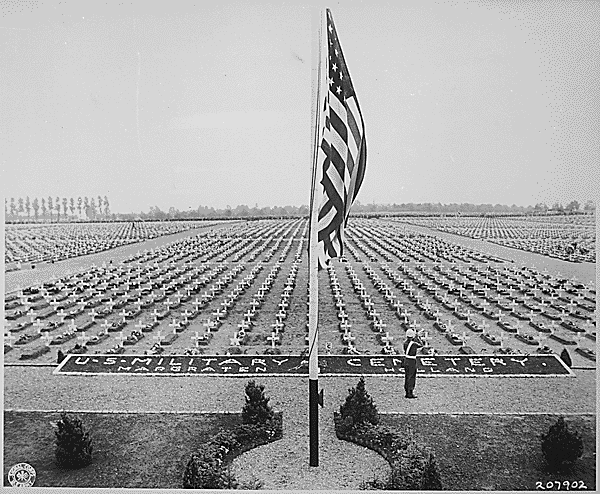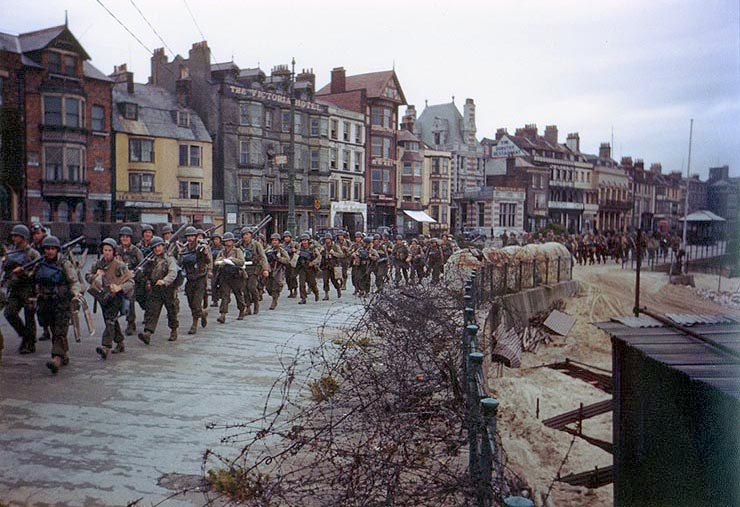To Live And Die For America, Pt. Two
1943
By 1943, Britain had become ruins. Germany had captured London, Dublin, and Edinburgh. Yet, England still fought on valiantly. With Winston Churchill as their leader, England refused to give into demands of surrender and capitulation. They took to the streets, they worked tirelessly, and they never lost hope. With England's resistance fighting from York and Belfast, Churchill promised his people that England would prevail and take back the Isles. Back in Australia, the fleeing American troops left an opportunity for an offensive against the occupied Australian regions, and for the next year the American bases would constantly be bombarded by the Commonwealth soldiers.
By the time Chancellor Browder met with the leaders of the Commonwealths, they had refused to surrender. Earlier in 1942, rumors of surrender had been circulating due to Britain being mostly lost and Australia being pillaged and bankrupted. "Surrender is the best option," said Browder sternly, "it would lead the world towards peace and a united, equal future." When Germany joined the war and the Axis cooperatively began attacking America, the Commonwealth met regularly and discussed passionately. By mid-1943, the Commonwealth, for the first time since their revolution and independence, unitedly and proudly responded to America: "No."
Arriving in the Philippines, the American offensive against Japan was disorganized and lacking any sign of morale. Their fellow comrades had lost their lives on the Pacific, and they had been dropped off on the tropical islands without reinforcements or regular communication to Browderville. Disease took the lives of many soldiers before a Japanese soldier was even spotted, and searching for food in this foreign land was difficult. Tanks were very ineffective with the dense jungles. Douglas MacArthur, leading the offensive, proposed a tactic that would flank the city of Manilla and avoid their strongest fortifications. With the offensive initiating on the 4th of April, the sweltering troops swaggered towards the city and began firing from their tanks. The battle was a disaster, with Japanese forces routing the offensive and ambushing the troops from the jungles. Those who fled either died in the jungles, or were quickly caught by Japanese and put in war prison.
By June, the first wave of naval attacks had died down, and the Communist Party had proudly announced to the nation that America was on the rebound. New ships were shipped out, and the coasts of America were once again guarded. Mexican offensives near Texas were weakened by air bombings, and negotiations with Russia were doing well. The Chancellor, in those few weeks, began combing his hair once again, and his stature and his persona restrengthened.
Rise of the Commonwealth
Success is not final, failure is not fatal: it is the courage to continue that counts.
With Winston Churchill gaining prestige and influence over the Commonwealth, a new sense of national pride developed, and pre-communist sentiment once again showed up in popular culture. The Royal Family, since being removed during Britain's Communist Revolution, began to regain respect and adoration as the English territories looked for a light in the darkness. Battles began being won again, and Britain had surprised the world when the island refused to surrender to Nazi Germany. Although London, Scotland, and Ireland were lost, the English fought on the countryside and in the Welsh hills. Manchester, Liverpool, and York refused to surrender as Nazi bombers flew by again and again.
Germany began losing London. With constant attacks and with their prime focus being on America, their defense in lower England was running thin. America also began losing cities in Oceania once again. Anzac forces did not relent in their struggle to recapture their continent. Marines hiding in the marshes of Guinea emerged and surprised American ports, taking both American airships and intelligence. By June, not only had the Commonwealth re-emerged as a conservative, proud people with a deep respect for the Crown, they had even found the opportunity to expand their empire. With India's republic collapsing due to a division between Islam and Hinduism, Churchill sent a reserve of Australia to take several key ports. Although initially condemned as an insane initiative due to America being at large, as America lost battle after battle to the Axis and as Britain gained control of India, Churchill was seen as a legendary hero on the same level as William the Conqueror.
China was neglected, though. Churchill found that interfering in the Chinese region would cost the Commonwealth their winning streak, and the instability of China with the rising of communism was already risky. Mongolia, a neighbor to China and a victim to Japan's attack, collapsed mid-year. Russian troops were seen rushing in to restore order, which strengthened tensions with Japan.
Another Year of Disaster
The last troops leaving from Australia were filled with guilt and shame. The cities they left behind were quickly captured by Australian forces, and they knew that if they did not succeed in their next battle, America would be lost to fascism. Once again sailing against the odds, the transports moved around suspected Japanese or Mexican ships and avoided confrontation -- if they could only make it to Hawaii, things would be okay. When Japan captured Honolulu and the major ports, the transports were distressed. They did not have enough food for a trip all the way to California, and without stopping they were open to attack. When the Japanese did catch up with the ships, white flags were thrown and the sailors begged for surrender.
Japan's navy struck hard. The entire western navy was lost in one push, and the cities on the coast were in a state of anarchy as fear terrorized America.
With Cuba lost, it was only a matter of time until Mexico's navy also destroyed the American navy stationed in the sea to protect luxury resources. As the navy was sunk, sugar became scarce in the States.
It was only a matter of time until the eastern coast was lost to Nazi Germany as well. Although putting up a good struggle with reinforcements from American airships on the coast, the Germans, fronted by new missile cruisers and reinforced with submarines, devastated the coast and opened it up to amphibious attack.
Chancellor Browder was a nervous wreck. Quickly traveling to Chicago, he stated that if the worst should come, he is not going down without a fight. He ordered short range tactical nukes, and a lot of them.
A letter was sent to the Chancellor from Tokyo, stating that peace will ensue if America gives the western coast peacefully. The Chancellor would not even give a response.
Thousands would die on the outskirts of Louisiana as Mexican forces moved in on New Orleans. The counter-offensive had failed, and reinforcements were not expected from the Pacific. Most of the defense were untrained, drafted laborers who barely knew how to operate a gun, let alone a tank.
Communist Egypt, although aided by the communist world and having defended the canal for decades, finally collapsed from a concentrated attack from Greece and Italy. The Axis proudly announced to the world their victory, and Egypt was put under Greek administration. Italy was furious over the decision, stating that Italy needs the region in order to connect to their Somalian and Ethiopian territories.
By now it was becoming apparent that America had no hopes of victory. Peru, a nation violently annexed early in the war, declared independence and retaliated by attacking American cities in Ecuador, Bolivia, and Chile.
By winter, as snow covered the Pacific Northwest, Japanese forces had landed and quickly taken the major city of Vancouver. The people barely resisted, having a strong sense of anti-Browderism from the secessions. Mines quickly were turned over to support the Japanese war machine, and troops moved along the coast to annex cities and raise the Japanese flag.
Unable to keep up with the attacks from Mexico, the southwestern states were soon lost. With less dense populations, drafting was more difficult, and the people simply did not want to fight for the Communist Party any longer.
Germany Lands
As Germany began landing on the American coast, the cities became barren and desolate. Iron gates were set up, and resistance were stationed in abandoned buildings and under bridges. Draftees as young as 16, with some illegally being drafted with the age of 14, could not even remember a time where America was not communist. With rifles in their hands, and their hands and clothes stained black from oil and smoke, they readied themselves to make a final stand against Hitler.
 It would have ruined the story but you know, whatever
It would have ruined the story but you know, whatever 
























